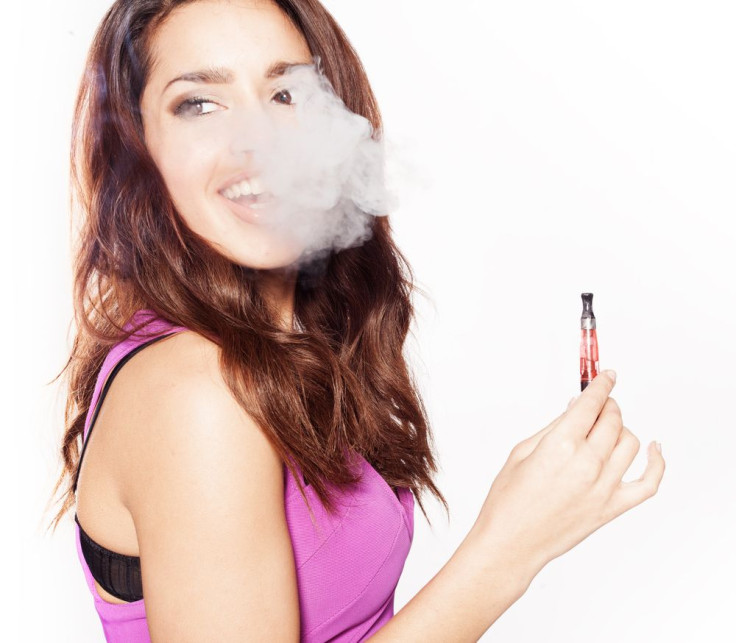E-Cigarettes Anger Candy And Cookie Makers With Infringing Flavor Names

Electronic cigarette smokers have been enjoying a wide variety of flavors such as Thin Mint, Tootsie Roll, Cinnamon Toast Crunch, and gummy bear without the Food and Drug Administration's regulation. The electronic cigarette, also known as an e-cig, was introduced by a Chinese pharmacist to the American market in 2007 and has since caused controversy.
The unregulated battery-powered device delivers liquid nicotine deep into the users’ lungs, producing the dangerous vapors with unknown health risks. The e-cig industry, which is composed of about 1,500 e-liquid makers in the U.S., reached nearly $2 billion in sales last year and will soon be faced with the inevitable FDA regulation.
"My favorite flavor is gummy bears because it tastes really good," Viviana Turincio, an 8th grade middle schooler from the San Francisco Bay Area, told NPR News.
Middle school-aged children and high school kids alike are increasingly becoming attracted to the child-like flavors of familiar candy and cookie names. According to the Stanford School of Medicine, e-liquids, which are what fuel e-cigs, are appealing to children and teenagers who are curious to experiment with tobacco products and are disarmed by the deceivingly “safe nature” of smokeless cigarettes. The sweet flavors help mask the bitterness of the tobacco, while the nicotine works to hook teens and create a new generation of addicts.
“Unfortunately it’s not going to change unless companies come in and assert their intellectual property,” said Linc Williams, board member of the American E-liquid Manufacturing Standards Association and an executive at NicVape Inc., which produces liquid nicotine.
Girl Scouts of the USA, General Mills Inc., and Tootsie Roll Industries Inc., are among the many companies that have already sent cease-and-desist letters to liquid nicotine manufacturers that demand them to stop labeling their products with their brand names, or else they’ll take further legal action.
“It’s the age-old problem with an emerging market,” Williams added. “As companies go through their maturity process of going from being a wild entrepreneur to starting to establish real corporate ethics and product stewardship, it’s something that we’re going to continue to see.”
The companies fear that the brand names they’ve worked hard to establish in people’s minds are going to be tainted with the association of an addictive and harmful substance such as nicotine. Some have even gone as far as to try and stop them from using names that simply attract children, like gummi bears, which aren’t a brand of their own but are a flavor concept many companies use regularly to market for children.
“We’re family oriented. A lot of kids eat our products, we have many adults also, but our big concern is we have to protect the trademark,” said Ellen Gordon, president and chief operating officer of Tootsie Roll Industries Inc. “When you have well-known trademarks, one of your responsibilities is to protect [them] because it’s been such a big investment over the years.”
E-cigs are even easier for kids to buy than the traditional cigarette because there’s no federal age restriction put into place. When states like California, try to prohibit sales to minors, they simply purchase from independent sellers on sites like eBay. The vaporized flavor copycats of our childhood favorite Girl Scout cookies, and their favorite Tootsie Rolls, disperse throughout restaurants, malls, and even some classroom when gone unnoticed, which makes them hard to track and even harder to stop.
“Using the Thin Mint name — which is synonymous with Girl Scouts and everything we do to enrich the lives of girls — to market e-cigarettes to youth is deceitful and shameless,” Girl Scouts spokeswoman Kelly Parisi said in a statement.



























